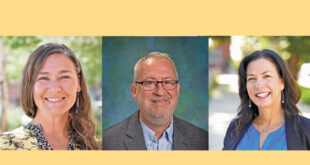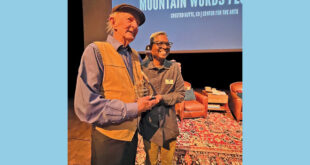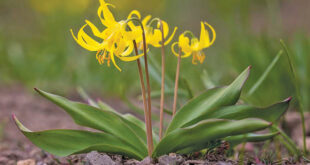by Dawne Belloise
“…For still there are so many things that I have never seen, In every wood in every spring, there is a different green…” – J.R.R. Tolkien
Seth Quigg has taken his wanderlust, stirred it with his expertise of trekking, photography and a good business sense, and created a life of adventure in a custom-made career most would envy.
Although being an outdoor trekking guide and traveling the world sounds incredibly romantic—and okay, it is most of the time—what goes on behind the scenes, the pre-trip planning, the initial exploratory trips, setting up all the details for safety and comfort to ensure an excellent experience before any client steps foot into the wilds takes a lot of know-how and many months of preparation.
In addition to some of the more familiar off-the-beaten-trail destinations, Seth takes his clients to remote places you may have never heard of and maybe can’t even pronounce. But he started out as a southern boy, growing up in Wake Forest, N.C., 15 miles north of Raleigh.
Life was good, growing up in his hometown, surrounded by forest. He played in the woods, built forts, and got into typical mischievous boy trouble. He had been adopted by two well-educated and supportive hippie parents—Seth’s dad was a professor of computer sciences at the University of North Carolina at Chapel Hill, a little liberal bubble south of the Mason-Dixon line, and his mom taught special education.
After graduating from high school in 2000, Seth enrolled at Appalachian State University in the mountains of Boone, N.C., and he laughs that he was one of the dreadlocked hippie students that the university was known for.
“But it was a good school. It was a very outdoorsy community and it wasn’t uncommon to see people slack lining, rock climbing, playing banjo, or smoking joints on the Sanford Mall on campus. That’s where I became passionate about outdoor recreation,” he says.

Seth dove into rec management and technical photography in his studies. He explains that technical photography is almost the opposite of art photography, as the focus is more on the theory of how to use different types of photography. He graduated with a bachelor of science degree in recreation management and tech photography in 2004.
During college, Seth also became enthusiastic about kayaking, rafting and whitewater sports. For three summers he was a raft guide in Kern River, Calif. and right after graduation, he went back to guide in California and then on to Butte, Mont., where he was hired to run the Americorps outreach program at the Montana Tech division of the University of Montana.
“It’s like the domestic Peace Corps,” Seth says. “We had 10 different projects all over Montana. I worked with college students on community service projects, like working with incarcerated Native American youth, doing activities with them, teaching life skills. We also had projects where we tracked big horn sheep with the U.S. Forest Service. We did a lot of tutoring in schools, too.”
Since the program followed an academic school year, Seth was able to take summers to guide in Alaska, his first year was spent in Denali and then in Gustavus, Glacier Bay. He worked four summers in Alaska.
Seth became an outdoor field instructor for the National Outdoor Leadership School (NOLS), teaching leadership skills to students of all ages.
“I was an outdoor instructor and a river instructor, so a mountain and river guide. I taught technical skills associated with the course and a very thorough leadership curriculum,” he says of NOLS, which has branches all over the world with their main base in Lander, Wyo.
“I worked all over, Wind River to Absarokas, Tetons, Salmon River, Pacific Northwest, the Cascades, Alaska, Baja, Mexico and on the Maha Kali River on the border of India and Nepal,” Seth says.
While he was with NOLS, Seth also taught with another company called World Challenge Expeditions in Australia, mainly in Victoria. He primarily trained all new staff, traveling all over both Australia and New Zealand from 2007 to 2015.
“I didn’t pay rent anywhere because I was living and working in the wilderness of other countries. I was super-transient, taking groups of students to different countries on outdoor pursuits. I used to go primarily for the outdoor work but then it became all about the peoples and their culture. There was a shift in my head. It wasn’t one specific moment but an accumulation of experiences,” Seth says, and it propelled him to go for his master’s degree in Prescott, Ariz., where he earned his master of arts degree in cross-cultural studies.
He was still with NOLS and worked with them to create a cross-cultural curriculum, initiating a program where students could stay with local families in a village, to enable them to study the culture and learn about the life of the peoples.
He worked with the director of research at NOLS to create ethnographic inquiry, developing questions about cultures and how it influenced a student’s intercultural competency. On each trip, the 10 to 15 students were given assignments, such as writing. “I’d have the students go sit in a plaza and observe their surrounds, what’s going on around them. Then they’d come back to a classroom situation and discuss,” but, Seth smiles, the classroom would be outdoors, perhaps in a forest in Madagascar.
Seth recalls his first trip working for World Challenge Expeditions, to the island of Borneo in the South China Sea in Indonesia. “We did a hike into the jungle. There are some radical creatures in there, and all types of insects. The Penan Tribe are hunter-gatherers, the nomadic indigenous jungle people there. We lived in a Penan village. They choose to keep their original culture but everything’s changing because of deforestation and technology.”
Seth explains that forests are being cut down to be replanted with palms for palm oil, which is an ingredient in so many products and therefore is a lucrative crop. “It’s affecting not only the Penan tribe but the whole island. Deforestation is actually happening all over the equatorial world and not just for palm oil.”
Seth has had adventures that would liken to Indiana Jones’ escapades. In Tanzania, East Africa, he was caught in the middle of a stampede of Cape buffalo while trekking with a group. “You’re supposed to make noise when hiking to scare off or warn animals. We had heard an elephant trumpet, and then the earth started shaking,” He describes the terrifying ordeal where the group dropped their backpacks and ran to the trees, climbing above the thundering herd. It only lasted a minute, but it seemed like an eternity.
“We climbed down afterwards and circled back around the ridge, and everyone was freaked out. But we busted out into this clearing and the moon was shining on the grass. It was so beautiful. And then we saw the Maasai warriors running full speed toward us, spears in hand. They had heard us yelling and thought we were in trouble and had come to help. We went with them that night and camped at their boma, their little huts.”
One of the Maasai from a different tribe is now one of his company’s business partners.
Seth and his Maasai partner constantly joke with each other, and Seth tells a story of how he got his East African nickname, Pimbi.
“There’s a little animal called a hyrax, which in Swahili is called a pimbi. I call my partner Nyani, which is a baboon. Nyani and I go meet this hunter-gatherer tribe called Hadzabe in Tanzania. We go hunting with them, taking off running through the savanna and it starts raining so we pull under a big rock and make a fire. The Hadzabe begin to sing this good fortune hunting song,” and Seth breaks into a rhythmic rendition from memory.
“They made me sing the song, too, saying, ‘Pimbe, you sing.’ As I was singing, an actual pimbe animal came out. They shot it and ate it, and made me eat the liver, which tasted horrible. But after that, they thought I was a magic man and had summoned the pimbe. They made me necklace out of the pimbe’s foot, which my dog later ate,” Seth laughs. Now, everyone in east Africa calls him Pimbe. The Hadzabe also gave him a monkey tail to wear on his head and all kinds of beautiful beads.
In another instance, on the border of India and Nepal, on the Maha Kali River, Seth had a student who was covered in tattoos and she asked if he would ever consider getting one himself. “And I said no way. When we finished teaching the river courses, we were sitting around the staff house, drinking beers and hanging out, when one of the Indian instructors showed up with a tattoo gun. We all got tattoos,” he laughs. Seth’s ink is on his wrist, a Mahayana Buddhist prayer written in Tibetan—Om mani padme hum.
Seth sees the changes in cultures since he started guiding; many are because of technology. “Technology is changing these cultures in both a positive and a negative way. I communicate with my guides now via Facebook Messenger or Whatsapp. My friends in Nepal, and across the world, have access to world info now and it’s changing cultures. Before, so many places didn’t have knowledge of the world. They’re not necessarily losing their culture, it’s just that people are more knowledgeable now about other lifestyles. Most people in the world have phones.”
Seth’s travels have taken him to remote places where natives have never seen a light-skinned human. He’s ridden a moped through Pakistani villages on the border of India, and has been the recipient of many blessing ceremonies by monks and holy people. He’s fascinated by world religions, specifically Buddhism. He lived with a Sadhu (a holy man) for five days in a cave in India.
But as transformational as the experiences can be, there comes a time when road weariness sets in and one longs to be rooted. Seth had reached his saturation point. He was tired of traveling the world, as he tells it, with, “No bed, no girlfriend, no nothing.” He needed balance, grounding and a change and he missed his family in Asheville.
In 2015, he headed back to teach at Lees McRae College and while there, he met a guy who was starting a branch of Wildland Trekking in the Smoky Mountains, running adult backpacking trips. Seth joined up to work with him.
“The company was killing it, booking lots of clients. I was making good money and figured I could have that stable life,” Seth says. He was still working a few trips with NOLS in Utah and working with World Challenge Expeditions in Ecuador. He had met Chelsea Dalporto-McDowell back during their college days and they reconnected in Asheville. Between all his treks and travels, they fell in love.
Chelsea had lived in Crested Butte for several years, and had recently landed a job at Western State Colorado University (WSCU) as director of Career Success in 2015.
“I was working in the Galapagos and when I finished the trip, I came back, got in my car and drove to Crested Butte and I haven’t left,” Seth says of his journey here in August 2015. “The timing was pretty amazing. I got a girlfriend, moved here, got a step-dog, a bed, and my own business that allows me to live here and travel,” he grins.
Scaffolding on experiences, Seth decided to create his own company by augmenting his expertise with Wildland Trekking, with whom he had worked. He created an international subsidiary by partnering with the three owners of the company. He brought to their table an international experience since the company only operated treks in continental United States, but they were the largest land-based operator in the Grand Canyon as well as touring places like Yellowstone, Wind River, Tetons and the Sierras.
Seth’s led ten expeditions through the Himalayas from India, and Trans Himalayas in the north, Tibet, China, and Nepal. He’s led treks to South America, Morocco, Iceland, Sri Lanka, Southeast Asia, Galapagos, France, Switzerland, Italy, Tanzania, New Zealand, and Australia and confesses that he really wants to get far off the grid.
He’s most excited about his possible upcoming trip to Tajikistan in August, and Papua New Guinea, neither of which he’s been to. This fall will take him back to Nepal as well. He’s also been contracted to guide a tour for WSCU to Costa Rica on a cross-cultural leadership course in May 2018. Afterwards, he and Chelsea will head to Peru with clients for an Inca Trail trip to Machu Picchu.
“I run my own trips now, instead of working for others. I’ve got the autonomy to do all the planning and I get to choose the trips I want to go on, and I have 120 hired guides. Right now, Crested Butte is my home. I can work from anywhere in the world but I love the access to the mountains here. I value cultural diversity and I get that because I get to travel, but I absolutely love it here,” Seth says, and he’s active in the community, volunteering once a week with the Adaptive Sports Center, helping people ski. “I’m constantly looking for more ways to get civically engaged. I want to be a part of stuff, help out and volunteer and network with people.”
Go to Wildlandtrekking.com for more information on joining a trek.
 The Crested Butte News Serving the Gunnison Valley since 1999
The Crested Butte News Serving the Gunnison Valley since 1999




